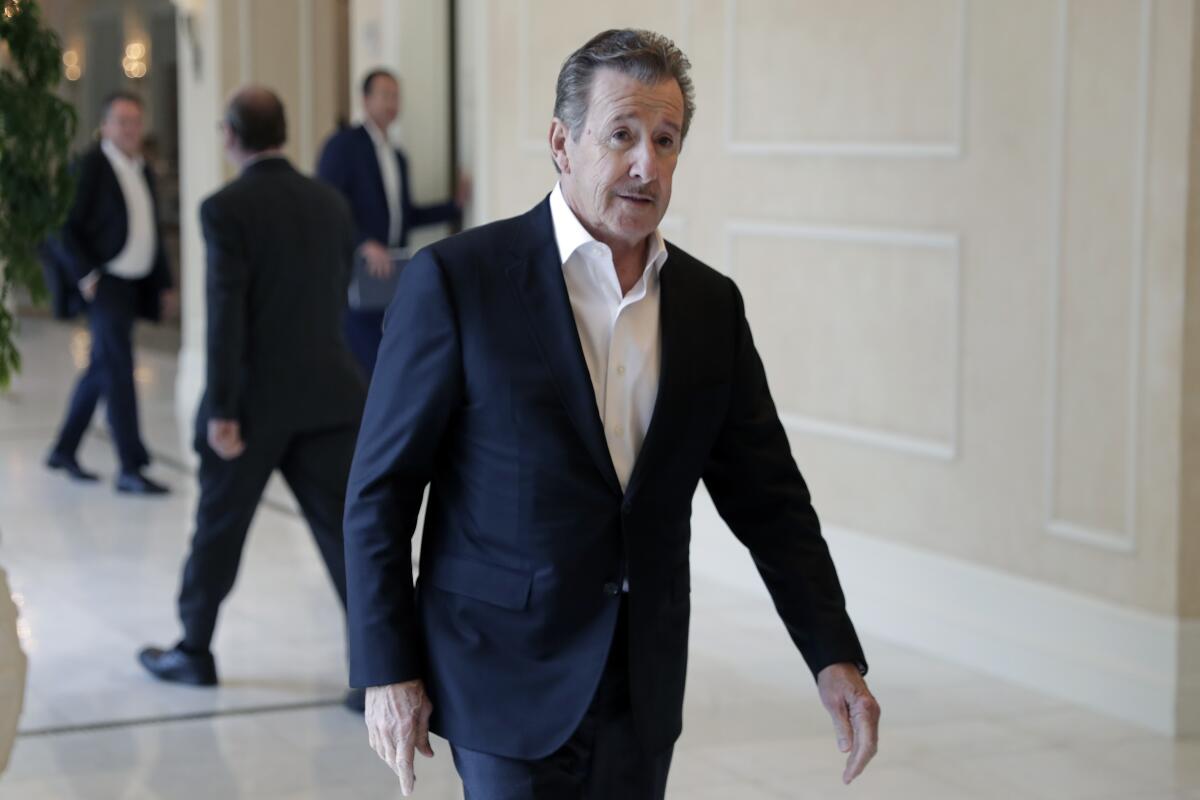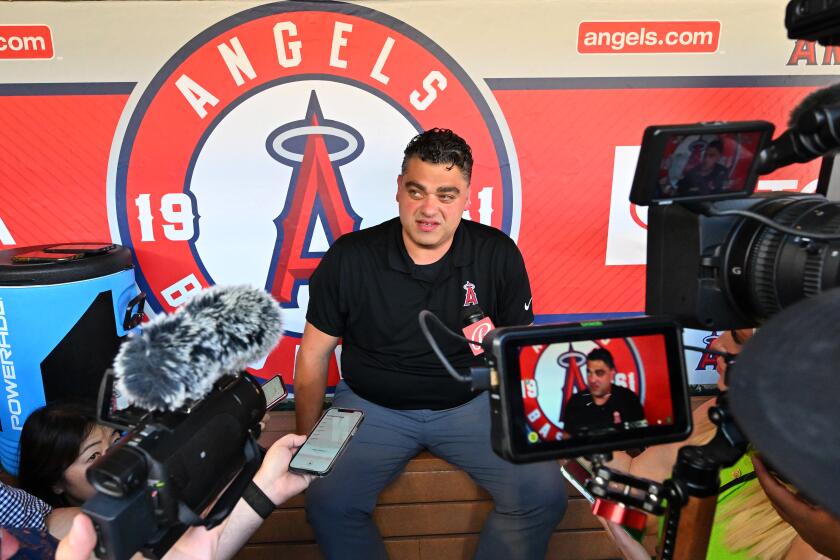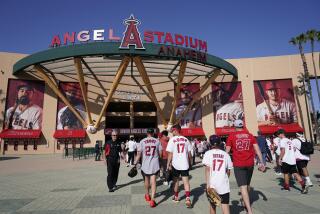How Anaheim could try to play hardball with Angels owner Arte Moreno

Even with Angels owner Arte Moreno in the midst of selling the Angels, the city of Anaheim might throw a nine-figure curveball at him.
On Tuesday, the Anaheim City Council is scheduled to consider whether to approve a study that could show Angel Stadium needs hundreds of millions of dollars of upgrades. The meeting agenda, posted Thursday night, said the study would be commissioned “in anticipation of potential litigation” that at least one councilman believes could force the team to pick up the tab.
In 2013, a city report estimated the stadium would need between $130 million and $150 million for maintenance, repairs and renovations over the ensuing 20 years. That estimated amount is “easily double” now, city spokesman Mike Lyster told the Orange County Register in August, but the proposed study would provide a detailed assessment.
The Angels’ lease at the city-owned stadium requires the team to pay the “sole expense” of ballpark maintenance and upkeep, aside from a specified city contribution each year. According to the city, the Angels have made $54.5 million in capital repairs and improvements since 2002, including the $12.3 million in city contributions. Moreno bought the team in 2003.
The lease specifies that the Angels must maintain their stadium “at least equal to first class professional baseball stadiums, such as, on the date hereof, Kansas City and Dodger stadiums.” The lease was signed in 1996, and the $117-million renovation of Angel Stadium was completed in 1998.
Since then, the Kansas City Royals’ stadium has received a $250-million upgrade courtesy of local taxpayers, and the Dodgers’ owners have invested $350 million into renovations at Dodger Stadium.
Councilman Jose Moreno, no relation to the Angels’ owner, said at an Oct. 25 meeting that the city “should look” to enforce the lease as necessary. City attorney Robert Fabela, speaking generally, said such enforcement could include asking a court to order compliance with a lease and award a payment for damages.
Angels GM Perry Minasian has plenty of work to do to make the Angels postseason bound in 2023 and keep stars Mike Trout and Shohei Ohtani around longer.
It is unclear whether a court could interpret “on the date hereof” to mean Angel Stadium needed to be maintained on par with the condition of the Royals’ stadium and Dodger Stadium on that date, or whether a court would simply consider those two ballparks as examples of contemporary first-class stadiums.
A clause in the same lease required the team name to “include the name Anaheim therein.” In 2005, after Arte Moreno changed the team name to Los Angeles Angels of Anaheim, the city sued, alleging he had violated the lease. An Orange County jury decided he had not.
It also is unclear whether the balance of the council is interested in pursuing action against the Angels. The term of Jose Moreno, who adamantly opposed the now-dead sale of the stadium and surrounding parking lots to Arte Moreno, is about to expire. In December, the city could have as many as four new members on the seven-person council.
Major League Baseball Commissioner Rob Manfred told The Times last month that the Angels’ sale process is “ongoing” and said it was “probably too early to guess as to whether it will be done by opening day.” The Angels’ lease automatically transfers to any new owner approved by the league.
If the stadium maintenance issue lingers, any new owner likely would ask Arte Moreno to assume any liability for the matter or discount the purchase price accordingly. The Angels are expected to sell for at least $2.5 billion, which would be a record price for an MLB team.
In September, an attorney representing the Angels suggested the city could be liable on two other fronts: one, for planning a fire station on parking lot land controlled by the Angels; and, two, for not returning $5 million in costs incurred in negotiating the now-dead stadium sale, in accordance with the sale agreement.
More to Read
Go beyond the scoreboard
Get the latest on L.A.'s teams in the daily Sports Report newsletter.
You may occasionally receive promotional content from the Los Angeles Times.








